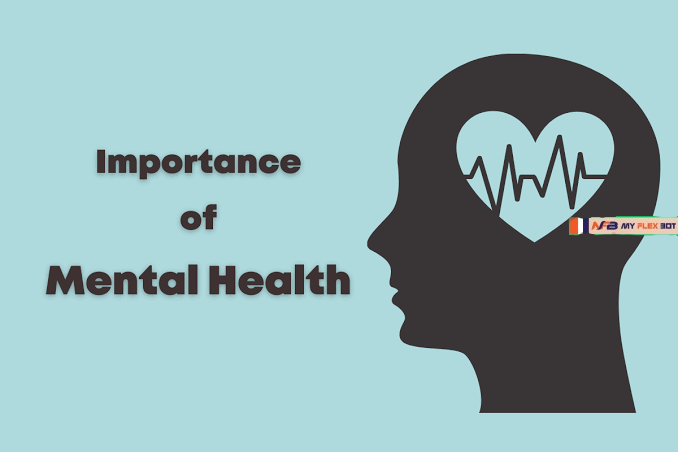Employers’ approach to mental health matters more than ever because people are working longer hours. This blog explores the significance of mental health awareness in the workplace, how to improve it and the programmes that promote healthier, more supportive work environments.
What is Mental Health Awareness?
Mental health awareness refers to an understanding of mental health issues and how they can affect anyone. It helps individuals recognise signs of mental health problems in themselves and others and encourages anyone struggling to talk openly and seek support.
Awareness is the first step towards change, breaking down the stigma that still exists around mental health and enabling individuals and organisations to take proactive measures to support mental well-being.
Why It’s Important to Address Mental Health
Addressing mental health is imperative for individuals and the communities they belong to. This significance can be broken down into several key points:
Direct Impact on Professional Capabilities: Mental well-being is directly tied to an individual’s professional capabilities. Employees in good mental health are more likely to
fully engage with their tasks, perform better and contribute to their workplace.
Reduction in Workplace Absenteeism and Turnover: Unaddressed mental health issues can significantly increase employee turnover. High turnover rates affect the workforce’s morale and impose financial burdens on employers. Companies can prevent mental health-related absenteeism and turnover by supporting their employees’ well-being.
Cost Implications for the Organisation: Mental health issues can lead to significant financial costs for organisations, stemming from lost productivity, increased healthcare expenses and the costs associated with employee turnover. Organisations can mitigate these costs by investing in mental health initiatives, leading to long-term financial benefits.
Fostering an Inclusive and Supportive Environment: Workplaces that prioritise mental health also support diversity and inclusivity. By addressing mental health openly, organisations can break down barriers, reduce stigma and create a culture where all employees feel supported and understood. This inclusivity leads to a more cohesive and collaborative work environment.
Building a Resilient Workforce: Employees who feel supported in their mental health challenges are more likely to bounce back from setbacks and adapt to changes. This resilience is crucial in fast-paced and demanding workplaces.
Read Also:- Wellhealthorganic Buffalo Milk Tag
How to Improve Mental Health In The Workplace
Improving mental health in the workplace involves a multifaceted approach that includes organisational changes, support systems and individual practices. Here are some strategies to enhance mental well-being at work:
- Promote Open Communication: Encourage a culture where employees feel safe to discuss mental health issues without fear of stigma or retribution. Regular check-ins by managers help create this environment.
- Provide Mental Health Resources: Offer access to mental health services such as Employee Assistance Programs (EAPs), counselling services and stress management workshops. Ensure employees are aware of these resources and know how to access them.
- Implement Flexible Work Policies: Allow flexible working hours and remote work options to help employees maintain a healthy work-life balance. These options can reduce stress and increase job satisfaction.
- Create a Supportive Environment: Foster a workplace culture that values inclusivity, support and understanding. Train managers to recognise signs of mental distress and to respond appropriately.
- Encourage Physical Activity: Physical health is closely linked to mental health. Provide opportunities for physical exercise, such as on-site fitness facilities, yoga classes or subsidised gym memberships.
- Monitor and Act: Regularly assess the effectiveness of mental health initiatives and make necessary adjustments. Solicit feedback from employees to ensure their needs are being met.
Programmes to Promote Mental Health Awareness in Workplaces

Mental Health Awareness Training:
Mental health awareness training educates employees about mental health conditions, the importance of mental well-being and how to support themselves and colleagues. It aims to reduce stigma, promote open discussions about mental health and encourage seeking help when needed.
Employee Assistance Programmes (EAPs):
These programmes aim to improve overall well-being and job performance. They provide confidential counselling services for employees facing personal or professional challenges, including mental health issues, financial troubles or family problems.
Stress Management Workshops:
These workshops offer employees tools and techniques to manage stress effectively, including time management skills, relaxation techniques and strategies for maintaining work-life balance, contributing to a reduction in workplace stress levels.
Mental Health First Aid Training:
This programme trains selected employees to recognise the signs and symptoms of mental health issues among their colleagues, provide initial support and guide them towards appropriate treatment.
Mental Health and Resilience Training:
Mental health and resilience training equips employees with strategies to build mental resilience and effectively cope with stress and challenges. This knowledge helps employees handle tough situations and stay positive even when faced with difficult times.
Read Also:- Self-Control is Strength, Calmness is Mastery – TYMOFF
Conclusion
Mental health awareness in the workplace is not just a moral obligation but a strategic investment. The journey towards mental health awareness should be ongoing and inclusive, with commitment from all levels of the organisation. By fostering a supportive environment, organisations can unlock their workforce’s full potential, increasing productivity, innovation and employee satisfaction.















Leave a Reply